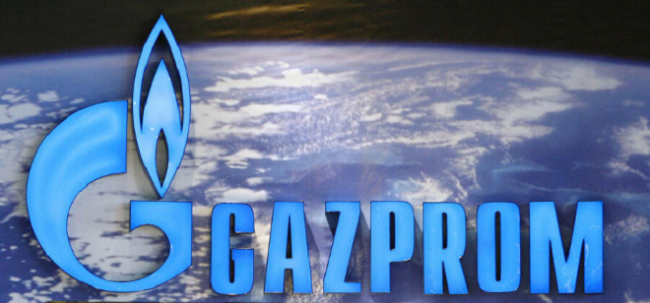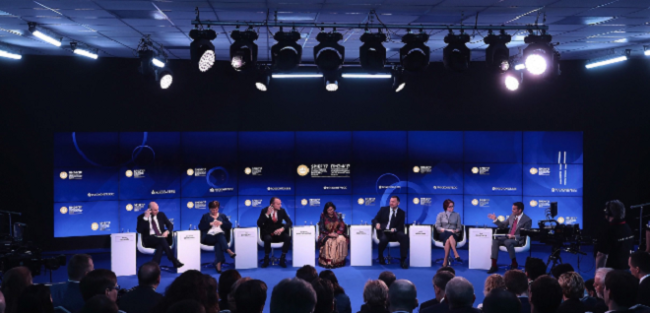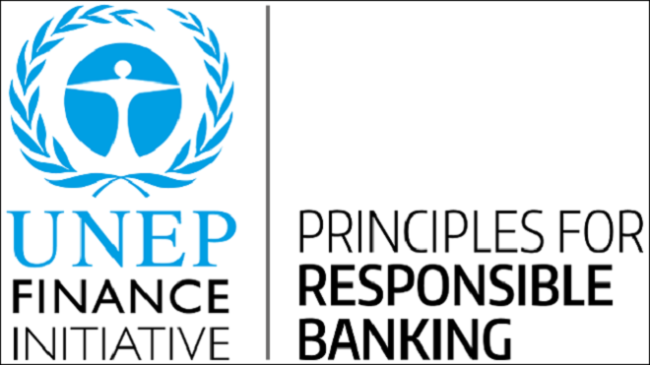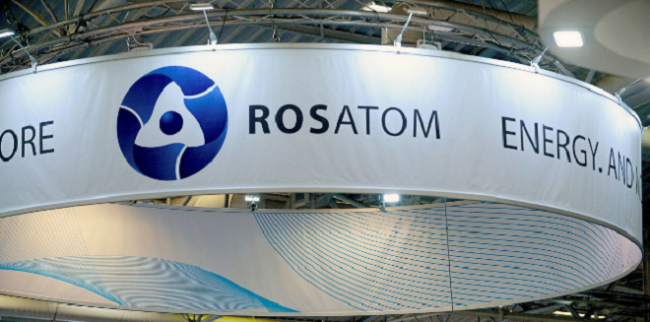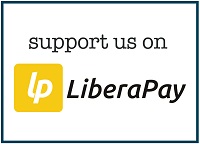Iain Davis
In a recent interview with Russian media, Nikolay Patrushev, an intelligence officer who is the former director of the Russian Federal Security Service (FSB) and the current secretary of the Russian Federation Security Council, spoke about the nature of power in the West. In keeping with the previous address of President Putin at Valdai, Patrushev shared many of the criticisms made by disillusioned Western commentators.
While some observers may think aspects of Patrushev’s critique accurate, fewer seem to have noticed that many of his criticisms are equally applicable to the Russian state and its “partners.” It’s as if the practically identical power structures are considered, for some unfathomable reason, different in Russia.
One argument being bandied about is that because Russian and Chinese companies were absent from this month’s World Economic Forum (WEF) annual soiree in Davos, this somehow means that Russia and China stand opposed to the globalist agenda. But this line of reasoning assumes that the WEF controls the globalist agenda. Such a contention is without supporting evidence. True, the WEF avidly promotes global governance, but it certainly isn’t alone in doing so.
As recently pointed out by Moscow-based journalist Riley Waggaman, according to former Russian Deputy Prime Ministers Arkady Dvorkovich, Russia supposedly doesn’t have oligarchs but rather “good, hard-working, socially responsible businessmen who take care of the country.”
Other promoters of this notion have claimed that the country doesn’t operate a system of “public-private partnerships.” Instead, they say, “Russia is about building a world order in which people are allowed to get rich, but in which they have to stay out of politics.”
The Fusion of Corporate and Political Power In Russia
Frankly, the idea that the Russian political class has eschewed public-private partnerships is farcical. The Russian state is, if nothing else, a complete fusion of the political and the corporate. Certain Russians are “allowed to get rich” precisely because they are intrinsically political. It appears that Patrushev is among those who would prefer you ignore this reality.
For example, in the aforementioned interview, he said:
It is clear that the real power in the West is in the hands of resourceful clans and transnational corporations. [. . .] The American authorities, merged with big business, serve the interests of transnational corporations, including the military-industrial complex.
This is a reasonable appraisal of how power operates in the West. But to infer that Russia isn’t ruled by its own “clan” is ludicrous. The news that it isn’t controlled by oligarchs would certainly come as a surprise to Russians, who, when polled, said they are pretty sure that Russia is dominated by oligarchs.
When Vladimir Putin was promoted to supreme power in 2000, he set about ridding Russia of the Western intelligence-backed Russian oligarchs who were stealing state assets. At the time, there were very few Russians who made the Forbes “rich list.” Now, following 22 years of Putin’s rule, there are close to 100.
Economic development under Putin has, by some measures, given rise to a marked improvement in Russian’s standard of living.
Simultaneously, though, wealth inequality—in particular, the concentration of wealth—has conspicuously increased in Russia. By 2020, the top 1% of Russians owned 58.2% of Russia’s entire wealth. This wealth concentrated in the top 1% is skewed by the inordinate concentration of wealth held by Putin’s closest allies and supporters.
For example, Alexei Miller (CEO of Gazprom), Alexey Mordachov (CEO and owner of Servestal), Gennady Timchenko (OAO Stroytransgaz) and Arkady Rotenberg (S.G.M. Group) have all become fabulously wealthy thanks to their ongoing political support for the Russian government and the resulting huge profits they’ve accrued from Russian infrastructure projects.
In turn, Russian government policies continue to suit the oligarchs Putin has empowered. This is a reciprocal relationship.
The Russian state’s military-industrial complex runs upon similar “public-private” lines. For example, Yevgeny Prigozhin, sometimes referred to as “Putin’s chef”—his restaurants are favoured dining spots for Putin and his partners—is another oligarch enriched by Russian government policy.
He is the owner of the PMC Wagner, the private military company whose recent successes in the strategically important Donetsk People’s Republic town of Solidar demonstrate the importance of his personal army to the Russian war effort.
The Russian state supplies and equips PMC Wagner. Prighozin has publicly criticised the state over the lack ammunition and supplies for his fighters.
In a December 2022 interview he said:
[A]s for the problems that, unfortunately, arise at every step, I hope that we’ll solve them. We’ll solve them and we’ll force [Russian military command] to solve them.
Russian transnational corporations (TNCs), such as Gazprom, are key to the Russian economy and its global governance ambitions. Rosatom, which is “state owned,” is the world’s leading nuclear energy and technology corporation.
It maintains global partnerships with numerous Western corporations and has nuclear plant construction projects underway in both the West and the East, including in NATO countries.
Many Russian TNCs are supposedly “state-owned,” but President Putin has repeatedly stressed that nationalisation is not his preferred model of TNC ownership.
Speaking in October 2022 at Valdai, he again said that the authorities (the Russian state) would proceed from “market principles.”
Yet TNCs have received state investment; the Russian government holds a 50.2% controlling share of Gazprom, for instance. Gazprom’s private investors, including BlackRock and Vanguard, collectively hold the remaining 49.8%. The Russian government is in no position to push these huge investors around.
Though the Russian GDP has contracted in the wake of the sanctions, it is “officially” valued at nearly $4 trillion (equivalent). By comparison, BlackRock alone has $10 trillion in assets under management. Economic power isn’t everything, but the Russian government would need to think long and hard before embarking upon an economic war with Gazprom’s private investors.
Given Putin’s own statements, and for reasons we are about to discuss, it is clear that Gazprom is effectively one among many such public-private partnerships in Russia.
Gazprom, Lukoil and Rosneft are among the largest natural gas corporations in the world. The Russian state itself is the world’s second–largest oil exporter, and Gazprom is the world’s single-largest producer of natural gas.
These enormous global corporations are just as market-orientated as any of their Western counterparts.
Following escalation of the Ukraine war, Western sanctions against Russia sent global gas and oil prices soaring. While Gazprom is supposedly “state-owned,” it is notable that the lower house of the Russian Duma had to amend the law to grab a $20 billion (equivalent) windfall tax from Gazprom’s exploding profits.
Exactly the same approach was adopted in the West, as energy TNCs in every country fed national coffers. War has always been a profitable business for the “connected” crowd.
No Public-Private Partnerships in Russia?
An oligarchy can be defined as rule by a select few—or concentration of all the power in the hands of a small group. In the West, we tend to think of immense wealth buying access to power. This access becomes a cycle of corruption, as political power enables the further acquisition of wealth, which in turn leads to greater political influence.
Elon Musk’s numerous US defence contracts and state subsidies have bolstered his exorbitant personal fortune, enabling him to control an important “public square” with his purchase of Twitter.
Musk is an oligarch who uses his wealth to influence policy decisions. Collectively, oligarchs like Musk, corporations like Gazprom, think tanks like the the Valdai Discussion Club, and national governments form an entity called the global public-private partnership.
Back to Patrushev’s interview. In it, he suggested that, unlike Western nations, the Russian Federation has a clear political direction that is supposedly distinct from the ambitions of its corporate partners.
This argument has no merit.
For starters, Western governments also have a clear political direction. Just like the Russian government, they seek to establish global governance with their TNC partners.
Here’s one such example: In January 2019 the UK government agreed to “partner” with the World Economic Forum to create regulations supporting “an environment which fosters and supports entrepreneurship and the innovative industries of the future” in tech and AI for the purpose of “unlock[ing] the potential of emerging technologies.”
Five months later, the WEF signed a strategic agreement with the United Nations (UN) to accelerate “finance flows toward the 2030 Agenda.”
The WEF and the UN aim to “foster opportunities for innovation, and to encourage a wide understanding of and support for priority issues among their relevant stakeholders.” Their “relevant stakeholders” include the UK government. It is patently obvious that the UN is the vehicle for the kind of “globalisation” that the WEF would like to see.
Similarly, in Russia, the St Petersburg International Economic Forum (SPIEF) represents the nexus between Eastern governments and their TNC partners. UN Secretary-General António Guterres attended the 2019 SPIEF, where he addressed the plenary session:
[T]he St. Petersburg Forum embodies a 21st-century truth: global challenges require global solutions. No country, and no organization, can do it alone. And we need political leaders, the business world, scientists, scholars, philanthropists and civil society to join hands in addressing shared threats and pursuing common opportunities. And that is why we are here. [. . .] Yet today international cooperation is under immense pressure. And the values of the United Nations Charter are being challenged and undercut. Today I would like to highlight several imperatives on which the spirit of St. Petersburg – the spirit of international cooperation – can help us prevail. First, building a fair globalization that works for all. [. . .] And the 2030 Agenda for Sustainable Development points the way. The 17 Sustainable Development Goals are the world’s agreed blueprint for building a safer, more equitable world and leaving no one behind.
Globalist forums like the SPIEF and the WEF are equally committed to this agenda. For example, the Russian state and SPIEF support implementation of corporate governance based upon “environmental, social, and governance” (ESG) ratings, which are key to the Agenda 2030 and Agenda 21 projects. Roscongress (see below) reports:
In 2020, Russia’s National Rating Agency developed and approved a methodology for assigning non-credit ratings that assess a company’s exposure to environmental and social business risks, as well as corporate governance risks (ESG ratings).
To be clear: The UN is the seat of global governance. Its Agenda 2030, along the path to Agenda 21, with its 17 Sustainable Development Goals (SDGs), is the overarching framework for the firm establishment of genuine global governance. The Russian and Chinese governments enthusiastically endorse global governance through the UN.
The UN published Agenda 21 in 1992 in which it outlined the future function of ESG ratings. Chapter 30, titled “Strengthening the Role of Business and Industry,” reads:
Business and industry, including transnational corporations, should recognize environmental management as among the highest corporate priorities and as a key determinant to sustainable development. [. . .] Governments, business and industry, including transnational corporations, should strengthen partnerships to implement the principles and criteria for sustainable development. [. . .] Governments, business and industry, including transnational corporations, academia and international organizations, should work towards the development and implementation of concepts and methodologies for the internalization of environmental costs into accounting and pricing mechanisms.
The SPIEF Foundation, renamed as Roscongress in 2015, oversees the organisation of the annual “Russian Davos.” So, then, we shouldn’t be surprised that Russia’s SPIEF and the WEF have been partner organisations since 2007.
In fact, these two “economic forums” signed a joint memorandum of cooperation in 2017.
First established in 1994, the SPIEF soiree has been “held under the auspices of the President of the Russian Federation” at the Lenexpo Exhibition Complex in St Petersburg since 2007. Following the escalation of the war in Ukraine, Western TNCs were noticeably absent at the annual SPIEF 2022 gathering, Just as Russian TNCs boycotted Davos.
As noted by Reuters:
There were no names of U.S. and European companies or their CEOs on the published schedule for the June 15–18 SPIEF — reflecting fears of punishment under the most sweeping sanctions regime ever imposed on a major power.
Washington, likewise, stated that it would not participate in SPIEF “in any capacity.”
Instead, US business interests were represented by Robert Agee, the President and CEO of the American Chamber of Commerce (AmCham) in Russia. The US Chamber of Commerce, the parent of AmCham, is perhaps the most powerful, single “official” lobby group in US politics. It shapes the careers of a large number of members of the US Congress.
The St Petersburg conclave usually brings Russian SPIEF and WEF “stakeholder partners” together. Previously, SPIEF’s lists of named attendees have included numerous WEF partners, such as KPMG, Accenture, Rakuten Group, Lulu Group, Huawei, Schneider Electric, Japan Bank for International Cooperation, Citigroup, American Express, Trafigura, Nokia, EY, Johnson & Johnson and TotalEnergies, etc.
It appears, as a result of the conflict in Ukraine, decades of collaboration and partnership have ended. Who knows if this is a permanent state of affairs?
We should note, however, that the partnerships on both alleged “sides” are pursuing exactly the same goals that they were prior to the supposed split. There remains overwhelming agreement between them, and we might wonder how deep the suggested divide actually is.
While some aver that Russia doesn’t do “public-private partnership,” this claim is not borne out by the fact that the 2022 SPIEF meeting included a discussion moderated by Pavel Seleznev. He is the general director of Russia’s Public-Private Partnership Development Centre (PPPC).
The PPPC was established in 2009 by the Russian State Development Corporation (VEB.RF). Its purpose is to promote public-private partnership investment; to provide, via its ROSINFRA platform, “market actors with the up-to-date analytics”; and to enable effective communication between “market actors” who are looking to invest.
VEB.RF is led by Igor Shuvalov, whose personal and family fortune and conspicuous spending are often the subject of criticism in Russia.
Shuvalov is reportedly among the Russian bankers close to Putin who used offshore banking facilitates to protect personal assets in the face of Western sanctions.
The PPPC has been very successful. Private investment in Russia’s infrastructure projects has increased significantly since its formation. Private capital from “market actors” now dominates the financing of Russian infrastructure projects.
The 2022 SPIEF plenary session heard from China’s President Xi Jinping. He emphasised the importance of UN Agenda 2030 (and thus Agenda 21) for managing change and tackling pandemics. He also spoke about the need for partnerships and innovative financing to advance economic globalization.
To this end, Russian commercial banks, such as Gazprombank, are “partners” with, for example, the UN Environmental Program Finance Initiative (UNEP-FI). As such, they are equally committed to “transforming finance and accelerating change” at the global governance level.
The purpose of UNEP-FI is to drive “net-zero ambition across investment, banking, and insurance” and to ensure that “environmental concerns” are at the “forefront of financial decision-making.” UNEP-FI is a staunch supporter and enabler of the Glasgow Financial Alliance for Net Zero (GFANZ).
The Russian banks are part of the UNEP-FI Principles of Responsible Investment” (PRI) initiative. As such, they are among the “international network of investor signatories” who are incorporating “environmental, social and governance (ESG)” factors into their “investment and ownership decisions.”
The commercial Russian banks are supported by the Russian central bank (CBR), which has stated:
The Bank of Russia recommends that financial institutions’ management bodies should assess the impact of ESG factors on a company, as well as set sustainable development goals and targets.
Consequently, in order to facilitate the transition to sustainable development, the Russian private commercial banks see it as their “duty” to engage with the Russian government in its policy decisions:
Public policy critically affects institutional investors’ ability and incentives to generate sustainable returns. It also affects the sustainability and stability of financial markets and of social, environmental and economic systems. Policy engagement is therefore a natural and necessary extension of investors’ duty to act in the best interests of their clients and beneficiaries.
This is public-private partnership writ large on the global stage by SPIEF, by the Russian government and by its TNC partners. The objective is indivisible from that espoused by the WEF and its TNC and government partners.
The intention is to exploit alleged global problems to establish global governance. There is no appreciable difference between West and Russia (or China) in this regard.
Contrary to Patrushev’s claims, the Russian government is in no way “independent” from its “transnational corporations.” In Russia, TNCs are part of the government. It is the epitome of both public-private partnership and oligarchy.
Only Western “Democracy” Is Corrupt
Patrushev proceeded to say in his interview:
The American state is just a shell for a conglomerate of huge corporations that rule the country and try to dominate the world. [. . .] It is no coincidence that a growing number of Americans are saying that Republicans and Democrats are just two actors in one play that has nothing to do with democracy.
Meanwhile, Russian “state-owned” conglomerates, such as Rosatom and Gazprom, already “dominate the world.” And they’re set to increase their dominance—again, thanks to Western sanctions. It is apparent that Russian and Chinese corporations are now well-placed to profit from new emerging markets.
The point has been made in this blog that no country anywhere in the world is a democracy. Democracy means that the rule of law is administered and controlled by no one but the people. “Representative democracy,” the preferred political model in the West, is not a true democracy.
So, yes, Patrushev’s observations on the nature of Western “representative democracy” were accurate. There is no meaningful difference between political parties with any realistic prospect of gaining power in the West. No matter who is in office, Western governments all follow the same policy trajectory, which has been set at the global governance level.
But Patrushev neglected to say that precisely the same is true in Russia. Russia is as much a globalist state as any other.
Take your pick of any globalist policy agenda and it is clear the Russian government and its TNC partners are on board. From sustainable development to digital ID, from Central Bank Digital Currency to vaccine passports and the establishment of a draconian biosecurity state, the Russian government and its partners are following, and even leading, on these global policy agendas.
At the national level, there is no electoral choice in Russia, either. National and regional election processes are not dissimilar to Western representative systems, but the electoral process is tightly controlled by the Kremlin.
The Russian government has repeatedly amended the Constitution of the Russian Federation to maintain the power of the current ruling “clan.” This is not to suggest that the situation is any better in the West. It is to suggest, though, that there is no practical difference between the two.
Only the West Uses Propaganda To Cause Harm
The interviewer then asked Patrushev what he considered to be the worst excesses of the Western TNCs. His reply:
The West has mastered the zombification of people with the help of mass propaganda, and now it seeks to use cognitive weapons, influencing each person [. . .] with the help of information technologies and neuropsychological methods. [. . .] Yesterday they advertised GMOs, not caring about what the health consequences of such products will be.
Russia does not permit the importation of GMO crops. But Petrashev’s suggestion that the Russian government is somehow opposed to propagandising its population on behalf of TNCs, in order to protect the health of ordinary Russians, is nonsense.
Throughout the so-called COVID crisis, Russians were propagandised relentlessly, as the Russian MSM maximised the “casedemic” to instill fear in the population, just as the Western MSM did. Also, the Russian corporate state used “mass propaganda” and deployed “cognitive weapons” to coerce the Russian people into getting the jabs.
Western populations are currently being regaled with tales of the scary “Kraken” COVID-19 variant—but so are Russians! In Russia, you can also grab the new Convasel jab which, it is claimed, has proven its effectiveness against the latest menace.
Just as in the West, the trials of the Convasel (Konvasel) jab and other Russian jabs, such as Sputnik V, were brief, to put it mildly. The Russian jabs are just as questionable, if not more so, than Western variations.
Those questions—many raised by eminent Russian medical scientists—are serious yet remain unanswered amid a silencing of all debate.
Medical professionals who have spoken out have been threatened with fines and imprisonment by the Russian state. The Russian MSM cast anyone who questioned the jabs as “enemies of the people.”
The very propaganda techniques that Patrushev criticised were used liberally in Russia. Patrushev’s deputy at the Security Council, Yuri Kopov, claimed that those who expressed doubts about the jabs were linked to terrorist groups. Kopov went as far as to allege that Al-Qaeda and ISIS were deliberately infecting people with COVID-19. This was an even more extreme version of the ludicrous propaganda spread in the West.
In short, there is no evidence that the Russian government is any more concerned about the health of its citizens than its Western counterparts. Nor is there any proof that it rejects the “zombification” of the Russian people through the use of propaganda and the unethical application of applied psychology.
Everyone Agrees Ukraine Is a NATO Proxy War
The article on the Patrushev interview was published in Russia on 11 January 2023. It seems he gave the interview on the 10th.
Patrushev said:
The events in Ukraine are not a clash between Moscow and Kyiv. [T]his is a military confrontation between NATO, and above all the United States and England, with Russia.
Speaking on UK national radio on the 10th of January—the same day that Patrushev apparently gave his interview—UK MP and Chair of the UK Commons Defence Committee Tobias Ellwood also spoke about the conflict in Ukraine. He told the BBC:
This is our war, but we’ve left the Ukrainians to do the fighting. [. . .] We have been too risk averse. [. . .] We should not be leaving this to the Ukrainians. [. . .] Russia is up for this fight.
Ellwood’s attention was then drawn by the BBC to Patrushev’s comments about Russia’s alleged fight with NATO—and the US and the UK, in particular. Asked about the nature of this alleged “proxy warfare.”
Ellwood replied:
We are now, absolutely involved in a proxy warfare, and we should raise our hands to that, and we should also recognise that the world is getting much, much more dangerous. [. . .] We’ve entered an era of insecurity. That’s where we’re going now. [. . .] The idea that the flames in Ukraine will just die down and we can all go back to normal is completely wrong.
Ellwood is also a lieutenant colonel in the British Army’s 77th Brigade. The role of that brigade is information warfare. So, as a senior 77th Brigade officer, Ellwood is an information warfare specialist.
You would have thought, given Patrushev’s and Ellwood’s respective roles, that they would publicly disagree. Ellwood might have been expected to frame Patrushev’s comments as nothing more than warmongering. But, on the contrary, Ellwood wished to ‘raise his hands’ in agreement.
The unprecedented admission by a UK information warfare expert that the UK is fighting a “proxy war” with Russia was remarkable enough. That it should agree with, and effectively endorse, the comments of the Secretary of the Russian Federation Security Council, made on the same day, is truly staggering.
As evidenced by the G20 Leaders Bali Declaration, Western governments, while supposedly at loggerheads, completely agree with Russia and with other BRICS governments on a wide gamut of global policies.
For instance, they all:
- jointly agreed to support Agenda 2030 and pursuit of “sustainable development;”
- value stakeholder capitalism (market actors), public-private partnerships and “innovative financing;”
- agreed on the implementation of the Fourth Industrial Revolution;
- think censorship and information governance are vital;
- support a global pandemic treaty and the integration of vaccine certificates into a single global digital ID;
- intend to roll out CBDCs;
- want to restructure the international monetary and financial system;
- agree that the global governance of every aspect of our lives is essential.
And now it seems we can add to their agreements the nature of the conflict in Ukraine.
It’s a Clash of Civilisations, But Only in the West
Ellwood’s nod toward the “new normal,” a prominent soundbite of the pseudopandemic, is also notable. According to one of the UK’s leading propagandists, a new, more intense form of cold war is now “normal” in the “much more dangerous world,” which he wants to characterise as an “era of insecurity.”
Yet, with such widespread agreement, it is perhaps surprising that there is any conflict at all. According to Patrushev, the antagonism runs so deep it can only be described as a clash of civilisations.
He said:
There is no place for our country in the West. [. . .] [T]he Westerners seek to weaken our country, to dismember it, to destroy the Russian language and the Russian world. [. . .] The Anglo-Saxons are obsessively trying to push the world community to the idea that these institutions [The UN and the UN Security Council] have generally outlived their usefulness, but we must live by the rules they invented. [. . .] For a Russian person, hatred, by definition, cannot be a unifying principle. Only Westerners are full of hatred, who openly call us opponents.
This theme, identifying the enemy as the “Anglo-Saxons,” echoes sentiments expressed earlier by the Russian Foreign Minister Sergey Lavrov and then by President Putin.
Meanwhile, Alexander Dugin, one of the staunchest advocates of the multipolar world order, agrees with Francis Fukiyama, who wrote in the The Financial Times:
The special military operation in Ukraine is the decisive momentum of establishing Russia as a civilisation, as a sovereign pole of a multipolar world.
To which Dugin replied:
Yes, this is exactly the “war on the liberal order.” [. . .] The importance of Ukraine for the rebirth of Russia as a fully independent world power has been clearly established by generations of Anglo-Saxon geopoliticians[.] [. . .] Any means were good to fight against the orthodox civilisation and the multipolar world. Putin, however, did not swallow it and entered the battle, not with Ukraine, but with globalism, with the world oligarchy, with the Great Reset, with liberalism, with the end of history. [. . .] The special military operation is directed [. . .] against liberalism and globalism. After all, it was Western liberals who made Ukrainian Nazism possible, supported it, armed it and set it upon Russia—as the new pole of a multipolar world.
It seems, then, for Patrushev, Lavrov, Dugin and Putin himself, that the Anglo-Saxons are the problem and that they are synonymous with the “liberal order.” Patrushev, as we observed above, believes Anglo-Saxons “are full of hatred.” It is clear that the political and philosophical heavyweights of the Russian state have set a clear distinction between the “Anglo-Saxon” and, by inference, the “Slavic” civilisations.
Other analysts, such as Col. Jacques Baud, the former Swiss Strategic Intelligence Service officer, do not agree:
This narrative, propagated by both the far right and the far left, exegetes the war in Ukraine as a showdown between a traditionalist, religiously-inspired civilisation and a “woke” West. Wrong. [. . .] Russia is not waging a civilisational war. One could even plead the opposite.
Politicians like Patrushev and Putin, plus many Western commentators, are clearly presenting the Ukraine war as a “clash of civilisations.” (We do not know if Col. Baude considers Patrushev and Putin to be either on the “far right” or the “far left.”)
Yet this clash is supposedly occurring at the same time that agreement on nearly every other aspect of global policy abounds. Where is this “clash”—other than in the statements of political leaders and propagandists who want to justify war?
Of course, the people of the West do not “hate” the Russian people. To suggest they do, as Patrushev did, is absurd.
There will always be a tiny minority of idiots eager to embrace “hate,” but they need to be directed toward it by their “leaders.” That seems precisely what the likes of Patrushev and Ellwood are trying to do.
Why?
Perhaps we get an answer from Patrushev, when he says:
There are structures that are designed to influence this situation in a positive way. This is the UN and the UN Security Council. Associations such as the SCO, BRICS, ASEAN and others are becoming increasingly popular.
That comment sounds like something that would be wholeheartedly endorsed by US President Joe Biden:
We’re working with the G7 and likeminded countries to prove democracies can deliver for their citizens but also deliver for the rest of the world as well. [. . .] Members of the U.N. Security Council, including the United States, should consistently uphold and defend the U.N. Charter[.]
Absolute agreement? Again?
Granted, there are cultural differences between the West and East, but these are not rooted in and do not result in “hatred.” The truth is that the power-hungry “clans” in both East and West, regardless of culture, are seeking to maximise their influence over a single set of global policy agendas.
From sustainable development and pandemic preparedness to the new international monetary and financial system, the “clans” have the same objectives and the same goals. The dispute between them is over the distribution of power within the single system that both “clans” collectively wish to impose upon humanity.
Meanwhile, we, the people, are being cajoled, through propaganda and deception, into believing that we are somehow invested in the clan’s games. Taught to “hate,” we are invited to support our given leaders and sacrifice ourselves in defence of our nominated “clans.”
A winner will emerge from this struggle. It is a global struggle, currently focused in Ukraine. As long as the globalists who seek to divide us are believed by the public at large, humanity will continue to be the loser. It has always been this way.

